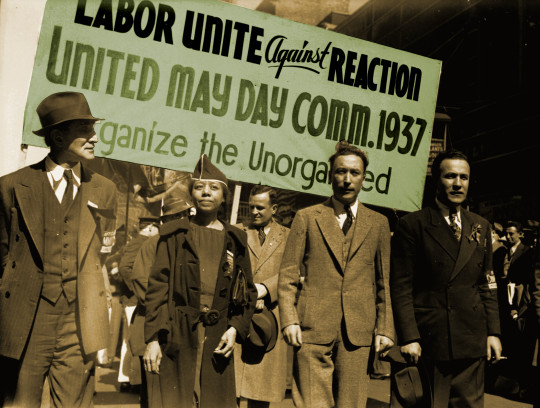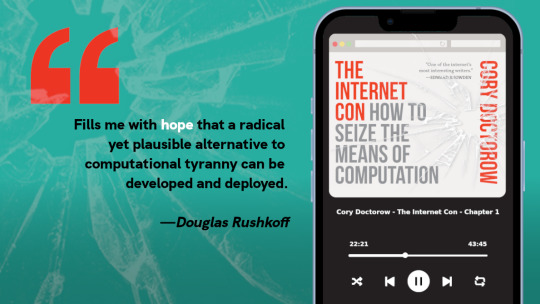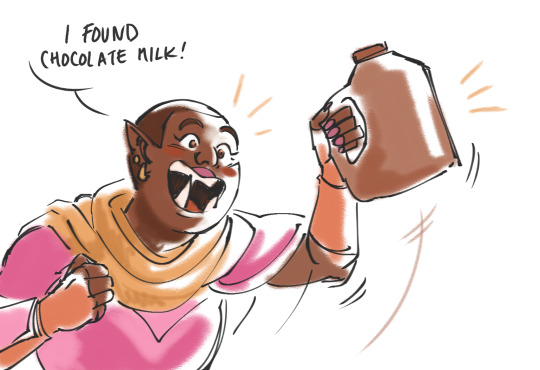#mortgage holders
Link
NEW ZEALAND’S BANK INTEREST RATES ON THE RISE AMID SEEMINGLY LOOMING CRISIS
As the US interest rates rise following Donald Trump’s election, Kiwi mortgage holders are the ones feeling the pinch of fixing the fast-rising interest rates. Homeowners across New Zealand are being warned to aptly fix their worryingly rising interest rates and avoid the looming increase. If they don’t do it, the damage may hit the whole industry in high severity.
Sure, it is the US Federal Reserve that initiated all the undesirable changes, although by just a quarter of a percentage point. But, it is the second time since the infamous global financial crisis that the central bank has done so. The move signalled more of the same, perhaps three more in 2017 alone, and it might push it up by between 1.25% and 1.5%.
#webuyproperty#property#property market#interest rates#banks#newzeland#financial crisis#reserve bank of newzealand#mortgage holders
0 notes
Text
years ago i was talking to a very influential to me tenant organizer and he was like, tenants have so much shame about being tenants. and i believed him because i look up to him, but it never resonated with me. but it's amazing how much it resonates every time i bring it up to groups. i dunno!
21 notes
·
View notes
Text
Romspen Threw In The Towel On Uphill Foreclosure Fight
Romspen Threw In The Towel To Avoid The Agony Of Defeat On Uphill Foreclosure Fight With Jetall Companies Over Houston Office
Why Did Romspen Throw In The Towel With Ali Choudhri? Were They Afraid Of Facing The Agony Of A Humiliating Defeat?
It appears Canadian lender Romspen threw in the towel in their uphill foreclosure battle with Jetall Companies. Let’s be honest. Romspen is having severe…

View On WordPress
#Ali Choudhri#banking#banks#Canadian Investment Regulatory Organization#canadian lender Romspen#Chrystia Freeland#CIRO#debt#foreclosure#foreclosure defense#foreclosures#Galleria Loop Note Holder#Investment Fraud#investment fraud scheme#investor redemptions#Jetall Companies#liens#mortgage fraud#mortgages#real estate#Romspen#romspen foreclosures#romspen freezing investor redemptions#romspen investor warning#romspen mortgage investment fund#Romspen toronto Canada#TIG Romspen US Master Mortgage LP#Wesley Roitman
0 notes
Text
Free watch young teen gay porn xxx and tiny anal galleries Breeding
Messy Hair, No Makeup Messy Cum In Yoga Pants and Fuzzy Socks
Tranny Caroline Martins Gives Blowjob And Pissed On
Vintage Danish Teens Doing everything
Juicy teen plays with muff using her long beautiful fingres
sweet teenie korean flashing tits and clit in public restroom
Socando a Rola na Neguinha Casal amador
Blonde milf first time Cory Chase in Revenge On Your Father
Big Booty Ebony Close Up WET
Nipple Play
#undetracting#inversion#counteragitation#zygophyceous#ionospherically#normalacy#xenocyst#preaccounting#Shaftesbury#arrode#indol#negliges#whole-timer#chestiest#preempts#Counce#algerite#scrapepenny#salt-cellar#mortgage-holder
0 notes
Text
silent girl
How I meet Alina Henessy
Teen cucumber and big tits webcam tease Petite teenager Zoe has been
Beureutte en levrette
Real Mom Son Sextape Leaked
Pussy eating ( CLIT PUMP )
Cuerpo femenino exibicion real
Jessica beppler peladinha em video amador
Haley Reed like to give blowjob on camera
Busty mom Nikki Delano blows big cock
#Shaftesbury#arrode#indol#negliges#whole-timer#chestiest#preempts#Counce#algerite#scrapepenny#salt-cellar#mortgage-holder#verges#cornified#bartends#well-enforced#mantegar#prankt#all-honored#preruption
0 notes
Link
Mortgage holders are expected to experience immediate hardship, but the RBA predicts more hikes in an effort to manage inflation. The Reserve Bank increased the cash rate by 25 basis points to 3.35% during its first meeting yesterday of 2023, the highest level in little over ten years. The majority of economists had expected such a rise.
To read more: https://auzziebusiness.com.au/rba-interest-rates-the-reserve-bank-increased-the-official-rate-to-3-35-to-combat-inflation/
0 notes
Text
When parties fail, movements step up

This Saturday (19 Aug), I'm appearing at the San Diego Union-Tribune Festival of Books. I'm on a 2:30PM panel called "Return From Retirement," followed by a signing:
https://www.sandiegouniontribune.com/festivalofbooks

Does anyone like the American two party system? The parties are opaque, private organizations, weak institutions that are prone to capture and corruption, and gerrymandering's "safe seats" means that the real election often takes place in the party's smoke-filled rooms, when a sure-thing candidate is selected:
https://doctorow.medium.com/weak-institutions-a26a20927b27
But there doesn't seem to be any way to fix it. For one thing, the two parties are in charge of any reform, and they're in no hurry to put themselves out of business. It's effectively impossible for a third party to gain any serious power in the USA, and that's by design. After the leftist Populists party came within a spitting distance of power in the 1890s, the Dems and Repubs got together and cooked the system, banning fusion voting and erecting other structural barriers.
The Nader and Perot campaigns were doomed from the outset, in other words. Either candidate could have been far more popular than the D and R on the ballot, and they still would have lost. It's how the deck is stacked, and to unstack it, reformers would need to take charge of at least one – and probably both – of the parties.
But that's not cause for surrender – it's a call to action. In an interview with Seymour Hersh, Thomas Frank (Listen, Liberal) sets out another locus of power, one with the potential to deliver control over the party to its base: social movements:
https://seymourhersh.substack.com/p/ordinary-people-by-the-millions
It's been done before. The parties are routinely transformed by power-shifts within their internal coalitions: since 1970, corporate Dems have consistently pushed the party to the right, making it the power of white-collar professionals and relying on working people showing up and marking their ballots with a D because they have "nowhere else to go."
Bill Clinton was the most successful of these corporate raiders, delivering the parts of the Reagan Revolution that Reagan himself could never have managed: dismantling tariffs and bank regulations, passing the crime bill and welfare "reform." He came within a whisper of (partially) privatizing Social Security.
This set in motion the forces that made Trumpism possible: when Dems told deindustrialized workers to "learn to code" and blamed them for the destruction of their communities, it opened a space for Make America Great Again, the (empty) workerist rhetoric of the GOP. The Dems' plan of putting "really smart people" in charge and letting them run things was a (predictable) disaster. "Really smart" isn't the same as "infallible" and really smart people can be spooked or bulled into doing the wrong thing – like Obama "foaming the runways" for the banks with the houses of mortgage holders, and leaving the bankers responsible for the Great Financial Crisis unscathed:
https://pluralistic.net/2023/03/15/mon-dieu-les-guillotines/#ceci-nes-pas-une-bailout
"Really smart people" can't get us out of this mess. Instead, we need the kind of muscular political action – the "whirlwind" – that characterized FDR's New Deal: "complete reformation of the banking industry.. just about every other industry as well. Regulation. Social Security. Public works. Antitrust. Soil conservation."
FDR got there by alienating his former classmates and refusing the go-slow entreaties of his cronies. He got there because there was a mass social movement that made him do it ("I want to do it, now make me do it"):
https://humanizingthevacuum.wordpress.com/2014/09/16/i-agree-with-you-i-want-to-do-it-now-make-me-do-it/
Every time in US history where one of the political party duopoly listened to its base, it was because of a mass social movement: the farmers' movement (1890s), labor (1930s), civil rights and antiwar (1960s). As Frank says:
Social movements succeed. They build and they change the intellectual climate and then, when the crisis comes, they make possible things like agrarian reform or the New Deal or the Civil Rights acts of the 1960s.
Today, we see the seeds of those social movements: the new union movement. Black Lives Matter. Neobrandeisians with their "hipster antitrust." These are the movements that are creating "ideas lying around": ideas that, in time of crisis, can move from the fringe to the center in an eyeblink:
https://doctorow.medium.com/ideas-lying-around-33a28901a7ae
They are setting in motion another transformation of the Democratic Party, from its top-down, "really smart people" model to a bottom-up, people-powered one, kept in check by movements, not party bosses. As Frank says, "They require the mass participation of ordinary people. Without that, I am afraid that nothing is possible."


I'm kickstarting the audiobook for "The Internet Con: How To Seize the Means of Computation," a Big Tech disassembly manual to disenshittify the web and make a new, good internet to succeed the old, good internet. It's a DRM-free book, which means Audible won't carry it, so this crowdfunder is essential. Back now to get the audio, Verso hardcover and ebook:
http://seizethemeansofcomputation.org

If you'd like an essay-formatted version of this post to read or share, here's a link to it on pluralistic.net, my surveillance-free, ad-free, tracker-free blog:
https://pluralistic.net/2023/08/17/popular-front-of-judea/#speaking-frankly
#pluralistic#sy hersh#theories of change#third parties#us politics#thomas frank#unions#labor#organized labor#civil rights movement#black lives matter#dinos#entryism#occupy democrats
268 notes
·
View notes
Text
Here's something that's really fucked up: debt runs the economy.
When someone incurs debt (borrows money), that then becomes, essentially, capital. The debt can generate profit in the form of interest payments so it becomes a commodity; a kind of security that has a value and can then be traded on the securities market. This is why you can buy, say medical debt, or mortgages, or loans and become the recipient of the debt's payout.
However, just like with every market, there will be speculation. Hoarding up a specific kind of security, for example, can drive up its price and thus make it more profitable to sell the security itself than to actually collect payments on the debt. This incentivizes financial institutions (banks and shit) to generate as much debt as possible to sell the debt as securities on the market for profit.
The decades long process of generating sub-prime mortgage loans that culminated in the 07-08 recession is an example of this sort of securities trading. When someone went to actually collect on the debt, in this case the leyman brothers, but only got a bunch of defaults, the entire securities market crashes through the floor because suddenly the speculated value vanished into thin air as there was no real money to be made from the debt. This then snowballed into a general recession as the financial institutions most involved with the securities trading refused to give out loans (both due to the crash of the securities market and a lack of on-hand capital among other factors).
In Imperialism: The Highest Stage of Capitalism, Lenin outlines the concentration and domination of financial capital as one of the primary drivers of a global imperialist capitalist system. Because the monopolistic banks handle the actual capital of industrial monopolies, they hold a power over the productive monopolies. They can see how much profit a certain company has, how much on-hand capital, how many employees, etc. etc.. Because they have this information, they can then selectively hand out capital in, for example, the form of loans to manipulate industry. This is further helped by the banks and industry (as well as government) intermingling with each other: government officials, industrial magnates, and financiers sit on each others boards of directors. Under imperialism, these dominating financial institutions also hand out capital to developing countries, foreign companies, and even foreign non-dominating financial institutions.
All this to say: this interconnected web of finance capital is all connected to the dominating monopolist banks in the imperial core which hold it up. And when these monopolistic financial institutions themselves stumble and fall, the entire world falls into recession. Capital stops flowing into the global south and instead the debt is recalled; the banks demand repayments on the debt they handed out. 9 times out of 10, these repayments cannot be done and so restructuring of the global south, outlined by the debt holders (the imperialist banks) occurs.
This is how a financial bubble in one country cascades into a global recession that greatly affected the global south more than the very country the bubble originated from.
#mmp#death to the usa#marxism leninism#Yes this is very much an abridged summary. more detail can be added
46 notes
·
View notes
Note
if you're still taking requests.... any other party members realising that Sasha, Azu and Hamid are all like. idiot 20-somethings ?? unless that's too vague! ❤️





RQG requests #25, IDIOT 20-SOMETHINGS!!! i’m not going to lie, this request Was a little intimidating because i had no idea how to make this funny or channel their twenty-somethingness in any way so i- ahem. had to unearth some memories from high school where, uh. chocolate milk with rum was a thing? and it was cursèd but people made it anyway and it was kind of a meme so. um. here they are. enjoy ¿?
in all seriousness, i fucking love this one. i think the fuckin faces and scribbles are on point, honestly. they’re all just SO no thoughts head empty. i love them. it’s been done for weeks and i still giggle whenever i see it. i relate to this holder-of-the-braincell grizzop but like, that was me at 16 to my classmates. yeah.
anyway, i imagine that, after getting all fixed up, sasha Would be pretty down to do weird shit just because she’s alive. i love her. it’s what she deserves. i miss season 3
thank you so much for this request!! <333 and shoutout to jerry van @crayonturtle for canonizing the gobfam 🙏🏽
ID under the cut!
[ID: a five-panel digital comic of azu, hamid, sasha and grizzop. it's drawn with sketchy black lines on a white background, and the characters are colored with flat and bold colors. azu is a buff, tall black orc, with a shaved head, pink lipstick and white tusks. she has a pink breastplate, a long yellow shawl around her neck, loose yellow pants and brown boots. hamid is short, fat, dark-skinned and dressed in a dark three-piece suit with a green vest, and his purple cape. he's wearing gold make-up and his hair is dark brown, curly and slicked back. sasha is very pale, with shaggy black hair and an undercut, where the white patch is visible. she has dark circles and burns on her face. she's wearing a studded leather jacket, dark gloves and leather armor under the jacket. grizzop has dark gray skin, a scar on the bridge of his nose, dangling arrow earrings on his long ears, red eyes and freckles. he has a green coat with a high orange collar, pauldrons, and a silver breastplate.
the comic goes as follows:
panel 1: azu is coming in from the left, with an excited smile and raising a big jug of chocolate milk in her left hand. she's shown from the chest up.
AZU: I found chocolate milk!
panel 2: hamid comes in from the right, hovering. he's also grinning excitedly and is holding up a red bottle with both hands.
HAMID: I got rum!
panel 3: sasha is on the center, from the chest up. she's pointing to her face with both hands and grinning in a manic way.
SASHA: Who wants to try mixing them in my mouth?!
panel 4: the camera pulls back to show the three of them further away, to the right, with grizzop watching them in the foreground with his back to the camera, sitting and polishing his arrows. sasha is screaming up to the sky, back to the camera, while azu and hamid come from either side of her holding their bottles, azu running and hamid flying. they both have cartoony, dot-eyed grinning faces.
SASHA: Fucking bring it!!
AZU: Eeey!
HAMID: Eeey!
panel 5: same angle and distribution from panel 4. in the background, azu and hamid are pouring down the milk and rum down sasha's mouth, pumping their free fists in the air. sasha stands a little unsteadily. grizzop is turning to the camera with an unimpressed, disapproving expression.
GRIZZOP: I have six kids and a mortgage. I am entirely too old for this.
AZU, HAMID: Chug! Chug! Chug! Chug!
SASHA (gurgling): Blrghughblhgbh-
end ID]
#hamid saleh haroun al tahan#sasha rackett#grizzop drik acht amsterdam#rqg azu#rqg#rusty quill gaming#digital#fanart#doodle#comic#2022#the great swarm of rqg requests 2k22
628 notes
·
View notes
Text
Liz Truss is the most disastrous and unpopular leader in modern British history. Mortgage holders and small businesses still loathe her for sending interest rates through the roof. Her short, catastrophic premiership is routinely compared unfavourably to the shelf life of a lettuce. (A comparison first made by the bright leader writers at the Economist to give credit where it is due.)
When Labour wins the next election, its triumph will be in part the result of the public’s reaction against her vast and dogmatic economic folly.
If you were Liz Truss, you might retire from public life. At the very least you would apologize and hang your head in shame.
If readers expect contrition, however, they have yet to learn that being on the radical right means never having to say you are sorry.
Truss’s demotion from national leader to national joke has not embarrassed her in the slightest but pushed deep into paranoid conspiracism.
Her autobiography, bizarrely titled Ten Years to Save the West, as if the fate of liberal democracy depended on the advice of an epic failure, shows that, despite all she did to this country, her eyes still shine with a bright, self-righteous fanaticism, as if the sockets are backlit by an idiot’s lantern,
Chutzpah used to be defined as murdering both your parents and asking the court for clemency because you are an orphan. In Truss’s case it is using the power of the prime minister to crash the economy and then claiming she was a powerless victim of the liberal elite.
Her writing is as lacking in self-awareness as it is powered by self-righteousness.
At one point she says in all innocence that, when Boris Johnson resigned in the summer of 2022, her agent encouraged her to join the race to be prime minister, as the campaign might be good for her profile.
But she reports that he then wisely added “it would be for the best if I came second”.
Later she informs us that during the leadership campaign she “frankly lost trust in many of my erstwhile ministerial colleagues who were supporting my opponent [Rishi Sunak].
“They had spent the last six weeks not just attacking me but seeking to undermine my plans, saying my agenda was unworkable."
Truss never stops to think that the few people who will finish this book will believe that her agent was right, and it would clearly have been for the best if she had never been prime minister.
Nor does she contemplate the possibility that her agenda was indeed “unworkable”, and was proved to be unworkable when her unfunded tax cuts and fuel subsidies sent the price of gilts shooting up, the value of the pound crashing down, and caused a crisis in the pension industry for good measure.
And yet, and yet…Mock her as much as you like. Please don’t hold back on my account. But you cannot dismiss her.
There are two reasons why Truss is still dangerous. The first lies in the strength of the right-wing clique that brought her to power.
It is true that Liz Truss did not become prime minister by winning over Conservative MPs. As with Jeremy Corbyn’s leadership of the Labour party, Truss’s career illustrates the danger of expecting leaders who do not have the support of a plurality of their colleagues to function in a Parliamentary democracy.
But she still beat Rishi Sunak with the votes of 57 percent of Tory members.
And with the honourable exception of the Times, the Tory press was all for her. “In Liz We Trust”, said the Express “Cometh the Hour, Cometh the Woman”, cried the Mail. “Liz Puts Her Foot on the Gas”, cheered the Sun.
Kwasi Kwarteng set off a market panic as he put Truss’s ideas into practice in the mini budget of September 2022. The reaction of right-wing papers was not one of alarm, however, but of adoration.
“At last”, gushed the Daily Mail, “a True Tory Budget”. A Daily Telegraph commentator said it was “the best Budget I have ever heard a British Chancellor deliver”.
Meanwhile the Truss premiership allowed the voodoo economics of the US-influenced (and in all probability US-financed) think tanks to finally impose itself on this luckless country. The Centre for Policy Studies welcomed the mini-budget saying it was “exactly what we would have hoped for”. The Taxpayers’ Alliance called it “the most taxpayer-friendly budget in recent memory”.
Robert Saunders of Queen Mary University made the unarguable point that Truss was not an aberration or some alien figure that had appeared from nowhere to take over the Conservative party.
Follow the money that cascaded in from party donors, he said, and “the Truss premiership begins to look less like the personal failure of a flawed individual, and more like a systemic disaster for which the party bears collective responsibility”.
Those forces will dominate the Conservative party after its defeat and drive it to the radical right. Indeed, in opposition the members, the think tanks, the press and the ideologue donors will become more important, for they will be all the party has.
In a sign of things to come, Truss is already allying with Nigel Farage, and even Rishi Sunak says he will not ban Farage from joining Conservative party.
Despite her failure, Truss remains a potent figure on the radical right because of her championing of revanchism, which is now its dominant emotion.
This isn't a book. It’s a 300-page wail of resentment at a world that will not do as it is told.
I have no problem with conservatives complaining about woke policies taking over institutions. Only a fool or liar maintains that progressive biases among supposedly impartial organisations are an invention of the right,
But the woke conspiracy Truss invokes is of a wholly different order. It is utterly fantastical.
To recap, Truss's unfunded subsidies and tax cuts panicked the bond markets. They would not lend to a country whose leaders lacked plausible means of meeting its debts. Or if they did lend they would demand an additional yield on government bonds, which became known in plain-speaking financial markets as the “moron premium”: the extra cost that comes with lending to a nation run by idiots.
In her apologia Truss, who still poses as a Thatcherite, no longer sees markets as an expression of the wisdom of crowds, but as a conspiracy to do her down.
“I came to realise there is no such thing as ‘the market’ in this sense. Rather, there are groups of influential individuals in the financial establishment, all of whom know and speak to one another in a closed feedback loop. The Treasury, the Bank of England, and the OBR are deeply embedded in these social networks and share the same beliefs in the established economic orthodoxy."
The markets were at fault for not seeing her financial genius. Financial traders were the world’s unlikeliest lefties. Even though she and Kwarteng fired the permanent secretary at the Treasury and cut out the Bank of England and Office for Budget Responsibility from policy making, they were still, somehow, responsible for Tory failure.
“The powerful vested interests there pushed back, made my life very difficult and ultimately got me fired,” Truss concludes.
Older readers may remember a time when Conservatives insisted on personal responsibility. You were not allowed to blame crime on poverty or your failings on a bad childhood. You were accountable.
But the case of Liz Truss proves that these morality tales were only ever for the poor. In her mind, the economy collapsed not because of decisions she made but because of “a sustained whispering campaign by the economic establishment, encouraged and fueled by my political opponents in the Conservative Party who refused to accept my mandate to lead”.
Trumpism is the end point of such conspiracism and revanchism, and Truss goes all the way down the line to the terminus.
She mutters about the “deep state” a Trumpian phrase she uses without irony or self-knowledge.
And even though her support for Ukraine was her redeeming feature during her time as foreign secretary and prime minister, she is now supporting the pro-Putin Trump and his allies in Congress who are denying aid to Kyiv.
Truss is finished. But the resentment born of failure and the fury at modernity ensures Trump is still very much with us.
If he delights Putin and wins in November, the UK and Europe will learn the hard way that the real threat to Western civilisation comes from Liz Truss and her friends.
17 notes
·
View notes
Link
THE IMPACT OF THE RISING INTEREST RATES
To understand how the increasing interest rates will affect the property industry, you just have to interact with the current crop of homeowners as well as the others looking to own one.
According to Auckland Transport Blog, a house priced at $500,000 in 2012 is crazily retailing at $800,000 today, with the cost skyrocketing fast. Of course, such a gigantic figure, unlike less than five years ago, makes the home buying less affordable, especially given that incomes have barely risen over the same period.
#webuyproperty#property#property market#NZ housing market#interest rates#mortgage holders#reserve bank of new zealand#new zealand
0 notes
Text

Although yesterday was a jubilant day, a happy day, it was a bittersweet day.
The husband who we rent from, inherited his father's house a few years ago, but unbeknownst to them, not only the 3 liens they WERE aware of that were for his father's defunct gas station, they recently found TWO MORE liens, attached to the house.
The last we knew, they were approved for a loan of $5000 to get caught up on the mortgage, but the lien holders would get the money that they needed to pay their mortgage instead of them, the homeowners.
The husband is a landscaper, and during the winter he usually plows snow for money, but we did not have any snowfall enough to plow. Then he was hospitalized last month, and the wife is disabled and doesn't work.
We are grateful they took us in because we would have ended up homeless or worse.
They went to four attorneys, and the last one said they could do a work around so they would get the money, and not the lien holders.
They found out yesterday, unfortunately, this attorney also could not make it work where they would get the money and not the lien holders.
Matt used his whole paycheck to pay our rent and again, my car payment is due next week.
I tried calling the bank when we first got behind on payments due to my staying home to care for Matt after the deck collapse last fall.
They will not work with us. We were told the next time we are late on payments, we would not receive any notification of any action they may take, so the stress continues still. The vehicle company is Jeep.
Years ago when I had Toyotas, they would work with us if behind, but not Jeep. I will never own one ever again.
Next week when Matt has a day off, we may try to trade my vehicle in at another company.
Hopefully, we can get approved, but with both Matt and I just returning to work, I just don't know.
We have no idea how long this process will take regarding compensation for injury due to the deck collapse, but wish it was sooner than later to help our friends out. We would in a heartbeat.
I'm not writing this for the money, but to let you all know, we aren't out of the water just yet.
Please pray for our friends 🙏to find a way to keep their house and not go into foreclosure. We are dependent on them, and only hope there is a way where there is none.
All I know is, when there are two people or more gathered in His name, He is there also. ❤🙏
13 notes
·
View notes
Text
Nurses and senior management in Pirkanmaa are not seeing eye to eye, according to Helsingin Sanomat, after the wellbeing services county Pirha decided to start charging for phone consultations.
Since the middle of last month, Pirha started invoicing call-backs from staff at 30 euros a piece. So far patients have only been billed for calls made by doctors.
Pirha's head physician, Eija Tomás, argued that the new system will actually save patients money.
"The clinic visit fee and the old phone fee used to be 46 euros. If the patient's matter is such that they don't necessarily need to come in person, they now pay only 30 euros for handling their matter over the phone," she said.
Nurses have raised concerns that senior citizens living on modest pensions will lose out as healthcare moves toward telemedicine.
"These people won't become digitally savvy or wealthy, no matter how much we would like them to," one nurse told HS.
Russia's visa regime
Russia is working on easing visa procedures for several countries in the Middle East, Asia and Africa, reports Ilta-Sanomat, citing statements by Russian foreign ministry spokesperson Maria Zaharova.
Ilta-Sanomat asked Jarno Limnéll, a National Coalition Party MP, what Russia's long-term goal is in relaxing its visa rules.
Limnéll, a cyber security expert often cited in the media, said Russia may use visa-free travel as a tool for hybrid influence.
"If this is true, it's certainly aimed at facilitating people's access to Russia, and one reason may be this hybrid influencing and directing people towards the [Finnish] border," he said.
On Thursday the Finnish government has proposed allocating an extra 86 million euros for the Border Guard this year. The majority of the funds would go towards expediting the construction of fencing along Finland's border with Russia.
Borrowers wait for relief
Relief for mortgage holders may be slower than anticipated, reports Kauppalehti, even though Eurozone inflation slowed to 2.6 percent last month.
The 12-month Euribor, the most common reference rate in Finland, is expected to gradually decrease to below three percent around the turn of the year, according to the business daily.
"At the end of last year, we were expecting this [lower rates] a bit too much. Now it's clear that the development seems slower. But interest rate cuts will happen," Danske Bank research director Heidi Schauman said.
3 notes
·
View notes
Text
Short back story: the house next to me used to be inhabited by a shut-in who didn’t clean or fix anything. The house has been full of rodents since before I bought my house. I’ve had to pay more money than I care to think about to exterminators to seal up my house and keep it sealed.
He died last year, and in looking at the tax assessor site I found out he was not the mortgage holder, but that it had been repossessed by the bank many years ago. *I think.* After his death his brothers came to clean up the property, but then I think they figured out the brother hadn’t owned the house and they abandoned it and it’s been sitting there continuing to rot ever since.
This morning I saw a fucking raccoon scramble over the roof, climb up the chimney, then disappear right down into the house. And if raccoons are getting in, so are rats and squirrels and all kinds of other shit. Which means they also come out, and my house is like 20 feet away.
Does anyone have any experience with abandoned houses? I need someone to do something about that house, but I don’t know where to start. I’m thinking the city, but what department?
I think this house is way past rehabbing. It needs to be torn down or something. But since it has no owner, I don’t know what to do. There’s also a giant pine tree on the other side of the property line, but leans toward my house, and it’s old and limbs fall and I’m terrified of it landing on my kitchen.
tl;dr - who is responsible for abandoned houses?? (And it’s dangerous landscaping??)
29 notes
·
View notes
Text


sell commercial solar
If you have any desire to figure out how to sell sunlight-powered chargers quickly, you should comprehend what’s driving the unbelievable interest the business is encountering. These are the four fundamental variables
Rising energy costs
Have you taken a gander at your energy bill of late? Tragically, you’re probably paying essentially more than you were quite a while back. Be that as it may, sadly, so are individuals you sell sun based to every day.
Quite possibly the best thing about sunlight-based chargers is that they permit property holders to bring down their energy costs since they never again depend on service organizations to give them power. Thus, most property holders save $1,500 a year in the wake of putting resources into sunlight-based chargers.
Falling sunlight-based charger costs
Everyone needs to get a good deal on their power bill — however not if the expense of doing so is restrictive. Quite a while back, this could have been the situation. Notwithstanding, nowadays, the cost of introducing sunlight-powered chargers has dove by over 75%, making it significantly more reasonable.
As a little something extra, sun powered has been demonstrated to increment home estimations. For instance, one investigation discovered that homes with sun power sell for 4.1% more, coming about in a $9,274 normal knock-in deal cost.
Regulation and motivating forces
Set forth plainly, the American government is holding nothing back on the sun-based industry.
The Expansion Decrease Demonstration of 2022 is a help to everybody selling sun power. It permits mortgage holders to deduct 30% of their recently introduced planetary groups from their government charges. This could bring about immense investment funds.
Cross-country sunlight reception
Last but not least, sun oriented has gone standard.
Sun-powered is presently not a specialty energy hotspot for the world-class not many. All things being equal, it’s presently available to most mortgage holders and developing rapidly on account of the expense-saving potential.
Match this with the way that sunlight-based is an environmentally friendly power energy source and by and large, viewed as better for the planet, and you have a popular item that the vast majority are eager to claim.
Instructions to SELL MORE Sun-powered chargers
Anybody can figure out how to sell sunlight-based chargers — simply follow the tips underneath. When your group carries out these prescribed procedures, they’ll begin selling sun power much speedier than previously.
Comprehend sunlight-based tax reductions and motivations
Sun-powered chargers are less expensive than they used to be. However, they aren’t modest......sell commercial solar
2 notes
·
View notes
Text
Wall Street Journal goes to bat for the vultures who want to steal your house

Tonight (June 5) at 7:15PM, I’m in London at the British Library with my novel Red Team Blues, hosted by Baroness Martha Lane Fox.
Tomorrow (June 6), I’m on a Rightscon panel about interoperability.

The tacit social contract between the Wall Street Journal and its readers is this: the editorial page is for ideology, and the news section is for reality. Money talks and bullshit walks — and reality’s well-known anticapitalist bias means that hewing too closely to ideology will make you broke, and thus unable to push your ideology.
That’s why the editorial page will rail against “printing money” while the news section will confine itself to asking which kinds of federal spending competes with the private sector (creating a bidding war that drives up prices) and which kinds are not. If you want frothing takes about how covid relief checks will create “debt for our grandchildren,” seek it on the editorial page. For sober recognition that giving small amounts of money to working people will simply go to reducing consumer and student debt, look to the news.
But WSJ reporters haven’t had their corpus colossi severed: the brain-lobe that understands economic reality crosstalks with the lobe that worship the idea of a class hierarchy with capital on top and workers tugging their forelacks. When that happens, the coverage gets weird.
Take this weekend’s massive feature on “zombie mortgages,” long-written-off second mortgages that have been bought by pennies for vultures who are now trying to call them in:
https://www.wsj.com/articles/zombie-mortgages-could-force-some-homeowners-into-foreclosure-e615ab2a
These second mortgages — often in the form of home equity lines of credit (HELOCs) — date back to the subprime bubble of the early 2000s. As housing prices spiked to obscene levels and banks figured out how to issue risky mortgages and sell them off to suckers, everyday people were encouraged — and often tricked — into borrowing heavily against their houses, on complicated terms that could see their payments skyrocket down the road.
Once the bubble popped in 2008, the value of these houses crashed, and the mortgages fell “underwater” — meaning that market value of the homes was less than the amount outstanding on the mortgage. This triggered the foreclosure crisis, where banks that had received billions in public money forced their borrowers out of their homes. This was official policy: Obama’s Treasury Secretary Timothy Geithner boasted that forcing Americans out of their homes would “foam the runways” for the banks and give them a soft landing;
https://pluralistic.net/2023/03/06/personnel-are-policy/#janice-eberly
With so many homes underwater on their first mortgages, the holders of those second mortgages wrote them off. They had bought high-risk, high reward debt, the kind whose claims come after the other creditors have been paid off. As prices collapsed, it became clear that there wouldn’t be anything left over after those higher-priority loans were paid off.
The lenders (or the bag-holders the lenders sold the loans to) gave up. They stopped sending borrowers notices, stopped trying to collect. That’s the way markets work, after all — win some, lose some.
But then something funny happened: private equity firms, flush with cash from an increasingly wealthy caste of one percenters, went on a buying spree, snapping up every home they could lay hands on, becoming America’s foremost slumlords, presiding over an inventory of badly maintained homes whose tenants are drowned in junk fees before being evicted:
https://pluralistic.net/2022/02/08/wall-street-landlords/#the-new-slumlords
This drove a new real estate bubble, as PE companies engaged in bidding wars, confident that they could recoup high one-time payments by charging working people half their incomes in rent on homes they rented by the room. The “recovery” of real estate property brought those second mortgages back from the dead, creating the “zombie mortgages” the WSJ writes about.
These zombie mortgages were then sold at pennies on the dollar to vulture capitalists — finance firms who make a bet that they can convince the debtors to cough up on these old debts. This “distressed debt investing” is a scam that will be familiar to anyone who spends any time watching “finance influencers” — like forex trading and real estate flipping, it’s a favorite get-rich-quick scheme peddled to desperate people seeking “passive income.”
Like all get-rich-quick schemes, distressed debt investing is too good to be true. These ancient debts are generally past the statute of limitations and have been zeroed out by law. Even “good” debts generally lack any kind of paper-trail, having been traded from one aspiring arm-breaker to another so many times that the receipts are long gone.
Ultimately, distressed debt “investing” is a form of fraud, in which the “investor” has to master a social engineering patter in which they convince the putative debtor to pay debts they don’t actually owe, either by shading the truth or lying outright, generally salted with threats of civil and criminal penalties for a failure to pay.
That certainly goes for zombie mortgages. Writing about the WSJ’s coverage on Naked Capitalism, Yves Smith reminds readers not to “pay these extortionists a dime” without consulting a lawyer or a nonprofit debt counsellor, because any payment “vitiates” (revives) an otherwise dead loan:
https://www.nakedcapitalism.com/2023/06/wall-street-journal-aids-vulture-investors-threatening-second-mortgage-borrowers-with-foreclosure-on-nearly-always-legally-unenforceable-debt.html
But the WSJ’s 35-paragraph story somehow finds little room to advise readers on how to handle these shakedowns. Instead, it lionizes the arm-breakers who are chasing these debts as “investors…[who] make mortgage lending work.” The Journal even repeats — without commentary — the that these so-called investors’ “goal is to positively impact homeowners’ lives by helping them resolve past debt.”
This is where the Journal’s ideology bleeds off the editorial page into the news section. There is no credible theory that says that mortgage markets are improved by safeguarding the rights of vulture capitalists who buy old, forgotten second mortgages off reckless lenders who wrote them off a decade ago.
Doubtless there’s some version of the Hayek Mind-Virus that says that upholding the claims of lenders — even after those claims have been forgotten, revived and sold off — will give “capital allocators” the “confidence” they need to make loans in the future, which will improve the ability of everyday people to afford to buy houses, incentivizing developers to build houses, etc, etc.
But this is an ideological fairy-tale. As Michael Hudson describes in his brilliant histories of jubilee — debt cancellation — through history, societies that unfailingly prioritize the claims of lenders over borrowers eventually collapse:
https://pluralistic.net/2022/07/08/jubilant/#construire-des-passerelles
Foundationally, debts are amassed by producers who need to borrow capital to make the things that we all need. A farmer needs to borrow for seed and equipment and labor in order to sow and reap the harvest. If the harvest comes in, the farmer pays their debts. But not every harvest comes in — blight, storms, war or sickness — will eventually cause a failure and a default.
In those bad years, farmers don’t pay their debts, and then they add to them, borrowing for the next year. Even if that year’s harvest is good, some debt remains. Gradually, over time, farmers catch enough bad beats that they end up hopelessly mired in debt — debt that is passed on to their kids, just as the right to collect the debts are passed on to the lenders’ kids.
Left on its own, this splits society into hereditary creditors who get to dictate the conduct of hereditary debtors. Run things this way long enough and every farmer finds themselves obliged to grow ornamental flowers and dainties for their creditors’ dinner tables, while everyone else goes hungry — and society collapses.
The answer is jubilee: periodically zeroing out creditors’ claims by wiping all debts away. Jubilees were declared when a new king took the throne, or at set intervals, or whenever things got too lopsided. The point of capital allocation is efficiency and thus shared prosperity, not enriching capital allocators. That enrichment is merely an incentive, not the goal.
For generations, American policy has been to make housing asset appreciation the primary means by which families amass and pass on wealth; this is in contrast to, say, labor rights, which produce wealth by rewarding work with more pay and benefits. The American vision is that workers don’t need rights as workers, they need rights as owners — of homes, which will always increase in value.
There’s an obvious flaw in this logic: houses are necessities, as well as assets. You need a place to live in order to raise a family, do a job, found a business, get an education, recover from sickness or live out your retirement. Making houses monotonically more expensive benefits the people who get in early, but everyone else ends up crushed when their human necessity is treated as an asset:
https://gen.medium.com/the-rents-too-damned-high-520f958d5ec5
Worse: without a strong labor sector to provide countervailing force for capital, US politics has become increasingly friendly to rent-seekers of all kinds, who have increased the cost of health-care, education, and long-term care to eye-watering heights, forcing workers to remortgage, or sell off, the homes that were meant to be the source of their family’s long-term prosperity:
https://doctorow.medium.com/the-end-of-the-road-to-serfdom-bfad6f3b35a9
Today, reality’s leftist bias is getting harder and harder to ignore. The idea that people who buy debt at pennies on the dollar should be cheered on as they drain the bank-accounts — or seize the homes — of people who do productive work is pure ideology, the kind of thing you’d expect to see on the WSJ’s editorial page, but which sticks out like a sore thumb in the news pages.
Thankfully, the Consumer Finance Protection Bureau is on the case. Director Rohit Chopra has warned the arm-breakers chasing payments on zombie mortgages that it’s illegal for them to “threaten judicial actions, such as foreclosures, for debts that are past a state’s statute of limitations.”
But there’s still plenty of room for more action. As Smith notes, the 2012 National Mortgage Settlement — a “get out of jail for almost free” card for the big banks — enticed lots of banks to discharge those second mortgages. Per Smith: “if any servicer sold a second mortgage to a vulture lender that it had charged off and used for credit in the National Mortgage Settlement, it defrauded the Feds and applicable state.”
Maybe some hungry state attorney general could go after the banks pulling these fast ones and hit them for millions in fines — and then use the money to build public housing.

Catch me on tour with Red Team Blues in London and Berlin!

If you'd like an essay-formatted version of this post to read or share, here's a link to it on pluralistic.net, my surveillance-free, ad-free, tracker-free blog:
https://pluralistic.net/2023/06/04/vulture-capitalism/#distressed-assets

[Image ID: A Georgian eviction scene in which a bobby oversees three thugs who are using a battering ram to knock down a rural cottage wall. The image has been crudely colorized. A vulture looks on from the right, wearing a top-hat. The battering ram bears the WSJ logo.]
#pluralistic#great financial crisis#vulture capitalism#debts that can’t be paid won’t be paid#zombie debts#jubilee#michael hudson#wall street journal#business press#house thieves#debt#statute of limitations
129 notes
·
View notes